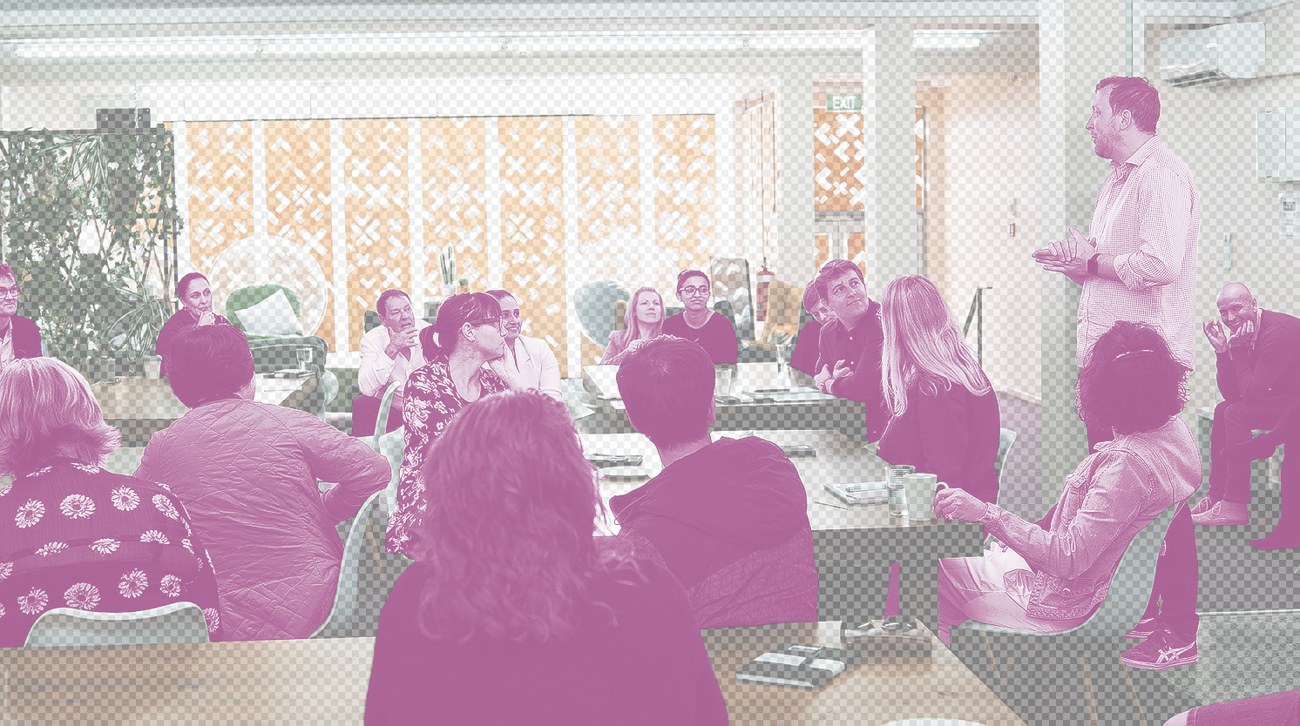
Idealog: Master of Technological Futures – sounds a bit like science fiction…
Ambani: True! But a lot of great innovations have been inspired by sci-fi, so that’s kind of appropriate. The name captures the fact that technology is going to be the major shaping force going forward. How we use it, how we respond to it, anticipate it or shape it, that’s up to us. That’s really what our Master’s is about; helping people connect their ideas or passions or problems with new technology, new business models or new ways of doing things to create meaningful change.
So what makes the Tech Futures’ Master’s stand out from other post-graduate degrees?
You can’t foster innovation by doing things the same old way, so our Master’s really breaks the mould. We take a very experiential approach. For example, you don’t learn about design thinking or agile methodologies as concepts, you learn about them by using them. That applied, practical quality is also clear in the way our Master’s is assessed. There are no obvious papers or courses, no thesis or exam. Instead you develop a project – it could be a new business or a new way of doing something in an existing business or a corporation – and that is what is assessed. Projects have a life beyond the Master’s programme – it’s a launch pad. It’s not like you finish and then have to think “Right, what now?”
Another difference is the high level of industry involvement. At Tech Futures Lab, you’ll get three or four external speakers a week during the first few months. These are innovators and entrepreneurs from leading-edge organisations who are willing to be really open about their experience and generous with their expertise. They’re also supportive of our candidates beyond the programme. Doing our Master’s builds an incredible professional network.
It is also very collaborative. You’re not isolated, working away with occasional help from a supervisor. Our candidates develop their projects with each other’s input, which brings the strength of diversity into play. We keep our cohorts small – never more than 30 – to foster this interaction.

What is a typical Tech Futures Lab Master’s candidate like?
I don’t think there is one! Usually, they’ve had some work experience in middle management or senior roles. Often they’re at a career pivot point. Perhaps they’ve been out of the workforce for a while and want to re-enter on their own terms, create their own opportunity. Some have had success in one field and want to apply their skills to another area, possibly one that has more meaning for them. We get people who realise the future of work is going to be very different from the traditional study-work-retire path and want to explore that. We get people who want to solve a problem or manage change in their employing organisation – they bring that burning challenge to the Master’s. We’ve really tried to structure the programme so you can continue with an existing role or business as well.
How can people position themselves to thrive in the context of innovation and disruptive tech?
Keep on learning! Continually exposing yourself to new ideas, developing your creative and critical thinking, honing your ability to collaborate and communicate, to continually re-invent; these things will sustain you in the face of technology-driven change. Come and talk to us. We love helping people work through the possibilities.

The next Master of Technological Futures intake starts in March 2019. Find out more at www.techfutureslab.com.




